The chimps have such a wonderful family of supporters. Every week, we receive packages of food, enrichment, office supplies, and other things that help the sanctuary operate. We rely on these gifts, sent through our Amazon.com Wish List, to keep the cupboards stocked and the enrichment bins full, which in turn helps keep the chimps happy.
We have very specific guidelines for items that we can and cannot give to the chimpanzees. To ensure your gifts are usable, in most cases it is better to purchase staff-selected items directly from our Amazon.com Wish List or earmark a monetary gift so the staff can purchase items. We also welcome gift certificates to Safeway, Fred Meyer, Home Depot, Lowes, and Office Max.
Most (but not all!) troll dolls pass the guidelines. If you'd like to send us items directly, please be sure to contact us first so that we can ensure that the chimps will be able to use your gift as you intended.
Here are our current guidelines:
If you follow the blog, you know that we serve a wide variety of food to the chimps. But for their health and safety, we follow these food rules:
- Nothing homemade prepared outside of the chimp house kitchen – Because we can never be 100% sure of the ingredients or the conditions in which foods are prepared, we don't give the chimps any homemade foods (e.g. baked goods, trail mix, etc.).
- No added sugar – We limit the sugar in the chimps' diet to sugar from natural sources such as whole fruit. Captive chimpanzees are at significant risk for diet-related illnesses such as diabetes and heart disease. We've found that with enough variety, chimpanzees will continue to get excited about healthy food, so we're confident that they don't feel deprived. When we do give foods that are sweetened, they're generally used to deliver medication (Gatorade is a favorite). If you do send food, check the ingredients label – you'd be amazed at the things they add sugar to (like dried fruit! Why?).
- No salt – There is a relationship between sodium and heart disease in humans, and the same is thought to hold true for chimpanzees. Therefore, to be on the safe side, we limit the amount of salt in their diet.
- No mangoes – Mangoes are great for chimps in general, but we have reason to believe that Annie is allergic to them.
- No meat, dairy, or eggs – The chimps at CSNW get plenty of protein from nuts, seeds, beans, and primate chow.
- Very limited grains and processed food – The chimps do get treats from time to time, but we try to stick to fresh foods and whole grains as much as possible. Acceptable grains and processed foods include whole grain pasta, brown rice, quinoa, and old-fashioned oats.
Variety is just as important when it comes to enrichment. We try to give them a little bit of everything, but for their safety, we follow these guidelines. Please note that these rules have changed over the years as we have observed the chimps interacting with different types of enrichment. Please also note that these rules apply to CSNW only and that other facilities must make their own determination as to what is safe for the particular chimpanzees in their care.
- No glass, wire, metal, large staples, or sharp edges
- No batteries or battery operated toys (even when the batteries are removed)
- No soft/flexible rubber, latex, soft/thin plastic, or foam, or styrofoam
- No small beads or beans in stuffed toys
- No tape
- No paintbrushes with metal tips
- No etch-a-sketches
- No needle point
- No pens
- No ribbon or string
In addition,
- All art supplies must be labeled as "nontoxic"
- Inedible objects between 1/2" and 2" (i.e., between the size of a raisin and a clementine) pose a risk if ingested. Therefore, we screen out these object from the chimps' enrichment. This includes objects inside of toys that could be accessed by the chimps if the toy was broken open.




